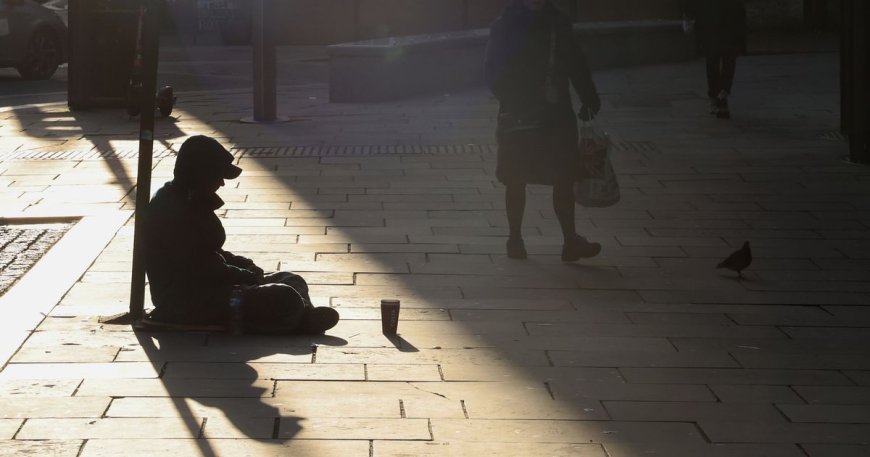Why the Outdated Vagrancy Act Must Go: A Firsthand Account
Liam Thorp shares his eye-opening experience in court, highlighting the need to repeal the 200-year-old Vagrancy Act criminalizing rough sleeping and begging. The recent decision by the government to scrap this law is a step towards justice for the vulnerable in society.

Just less than a month ago, I was sat in Liverpool Magistrates Court watching a hearing take place. It was a quiet day and several people had been before the court, charged with a variety of minor offences, before the case I was waiting for came before the bench.
This case involved a man called John Kirkham and while he was set to appear before the courts, there was no sign of him in the room. Kirkham, the court was told, had not turned up. But it was decided that the hearing could go ahead without him.
I had come to listen to the hearing because I had an interest in what Kirkham had been charged with, or more specifically the act he had been tried under - which was the Vagrancy Act.
The Vagrancy Act was enacted in England and Wales all the way back in 1824. The main effect of this act was to criminalise rough sleeping and begging. It was brought in during a period of increasing homelessness following the conclusion of the Napoleonic wars and the impact of the Industrial Revolution and the law allowed police to fine and arrest people for such acts.
The act was criticised by some at the time - including William Wilberforce - who said it was far too generic a law that gave no consideration for the circumstances of why someone might be homeless or forced to beg on the streets.
And that criticism has continued for the more than 200 years that the act has remained in place. The Crisis is one of a number of homelessness charities calling for it to be repealed for many years, arguing that \"punishing people simply for not having a home has no place in 21st century Britain.\"
With this in mind, I was interested to see how the courts would handle a case under this act - and this led me to John Kirkham, who had been charged with begging in a public place, contrary to section 3 of the Vagrancy Act (1824).
Neither Kirkham - whose address was given in court as a homeless shelter - or the police officer who had arrested him were in court, so the very short hearing consisted of the prosecution lawyer reading the statement from the officer.
The court heard that on March 29, at around 3.45pm in Green Lane in the Stoneycroft area of Liverpool, the officer was on duty in his car and was sitting in traffic when he saw a man walking in the road. He recognised him as John Kirkham, a man he had come into contact with several times before.
In his statement, the officer told the court that Kirkham was approaching cars and begging, while on crutches with his foot in a protective boot. The police officer described this as 'completely unacceptable behaviour towards members of the public', adding: \"Families don't deserve to face such aggressive begging directed towards them.\"
He said: \"In short, this behaviour is completely unacceptable and requires some sort of order.\" He later saw Kirkham and arrested him.
It took just a few short minutes for the magistrates in the quiet courtroom to find this matter proved before Kirkham was issued with a fine and total costs of £253.
To me, the whole thing just felt utterly futile. I am not saying that people should be harassed by aggressive begging, but I would question what the value to society of giving a homeless man, who is desperately begging for cash a fine and costs of more than £250.
Even if he was located, it seems unlikely he would ever be able to pay such costs - and to do so would surely only worsen the situation that has led him to be begging in the first place. It all felt very pointless.
I left the court planning to explore the matter further and compose more evidence as to why this Victorian-era law should in fact be repealed. However, just a few days later the government beat me to it.
In June, Deputy Prime Minister and Local Government and Housing Secretary Angela Rayner announced that the \"cruel and outdated\" Vagrancy Act would be scrapped by the spring of 2026. She said this move would \"draw a line under nearly two centuries of injustice towards some of the most vulnerable in society\".
The news was warmly welcomed by homelessness charities. Crisis chief executive Matt Downie said: \"This is a landmark moment that will change lives and prevent thousands of people from being pushed into the shadows, away from safety.\"
While this government has made plenty of mis-steps in its first year in office, this is an important and progressive move. From my experience reporting on homelessness in Liverpool - and what I witnessed that day in court - this is an outdated and cruel piece of legislation that only serves to make the lives of vulnerable people harder and does little for the public good.
What's Your Reaction?
 Like
0
Like
0
 Dislike
0
Dislike
0
 Love
0
Love
0
 Funny
0
Funny
0
 Angry
0
Angry
0
 Sad
0
Sad
0
 Wow
0
Wow
0














































































































































































